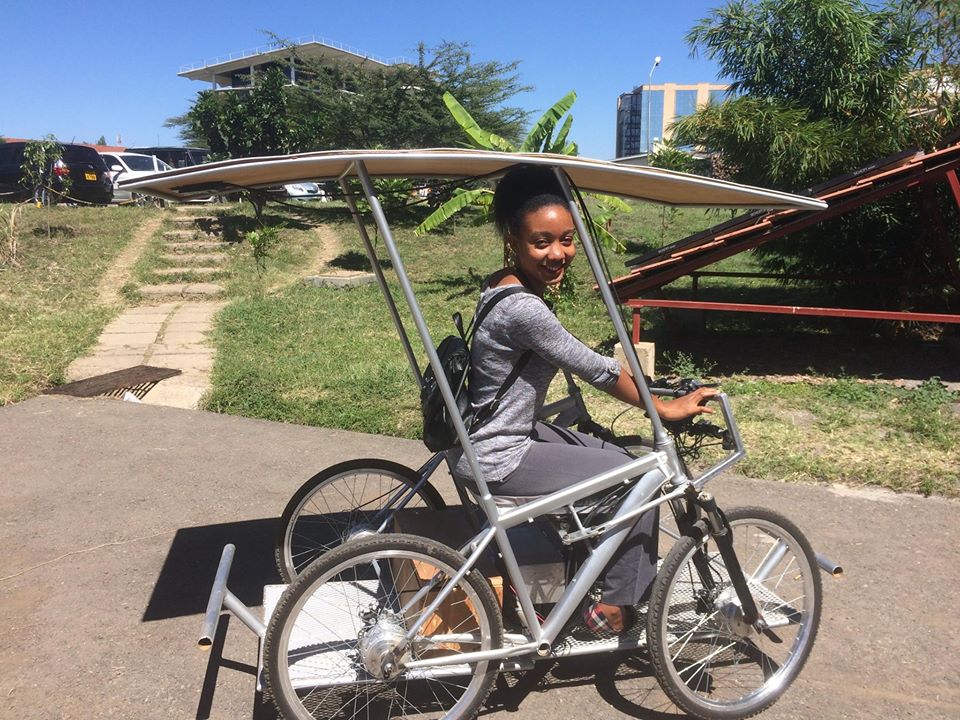advertisement
Solar E-Cycles offer green transportation in Africa
Earlier this October, Solar e-cycles launched a bike in Kenya probably as a market tester for this new product. Roger…

Earlier this October, Solar e-cycles launched a bike in Kenya probably as a market tester for this new product. Roger Christen, an industrial engineer and MBA, whose brains are behind this innovation, sheds light on this opportune home mate.
During his visit to a remote village in Northern Cameroon 30 years ago, Roger Christen sadly learnt that women and children walked about 10 KMS every day, searching for water. He thought of how to solve the water paradox for the villagers using solar power and would soon come up with the idea of the solar energy powered vehicles.
Christen spent 30 years preparing and implementing economic development projects in Africa, mostly working for the World Bank or its borrowing countries. In 2014, he realized that 622 million people in Africa did not have access to electricity. When it was estimated that the Africa population would grow to 4 billion people by the end of the century, he saw an opportunity that would not only generate revenue but also alleviate human suffering; the solar electric cycles.
advertisement
Solar electric cycles also Solar E-Cycles are low cost solar powered light electric vehicles, made from off the shelf parts that have a range of 50 kM per day and a speed of 35 KPH. They provide green transportation and have a capacity for two people. They add solar panels to bicycles to offer free energy anywhere in the world and with absolutely no need for fuel or electrical outlets to recharge batteries.
In 2014 Christen opened a small garage in Rabat and made a working prototype. He would later win a first financing of 200,000 euros from EEP EA with which he created a joint venture in Kenya called Solar-E-Cycles Kenya Limited. He is a co-chairman alongside a representative from their partners- the OFGEN SOLAR LTD.
They assemble very inexpensive vehicles that are useful for Africans at affordable prices and build the frames in Nairobi, Kenya. The vehicles are assembled at Strathmore Business School after acquiring most of the components such as PV panels, batteries, motors and bicycle and electronic parts from China. They have a metal engineering and fabrication supplier who welds the frames together.
advertisement
“Our motivation is social. We want to help people in developing countries get inexpensive transportation and electricity at a price they can afford. We want to change the world with our Solar-E-Cycles. We see the Solar E-Cycles as a development tool that provides users’ with the opportunity to earn revenue.” Roger Christen
Solar E-Cycles currently run a number of projects including a company in Morocco working on a system of solid waste collection using the vehicles. In Madagascar they collaborate with a ilk company to sell milk products. In Kenya, they are building 100 vehicles for street vending mostly in Nairobi but intends to test their products in the rural set ups like the Masai Mara. The company aims to have affiliate companies in the whole of African in ten years and be able to make 10 million vehicle units in a year.
They offer transportation services, street vending and multi-media services among many others and intend to train young people in maintenance services for the Solar E-Cycles and eventually to be able manage small business units using the vehicles in rural areas. They also intend to develop a portal to sell Solar E-Cycles over the internet.
Solar E-Cycles is a social enterprise with a profit objective that offers sustainable and environmental friendly transportation and power for economic development. The solutions are offered through affordable payment plans.
advertisement